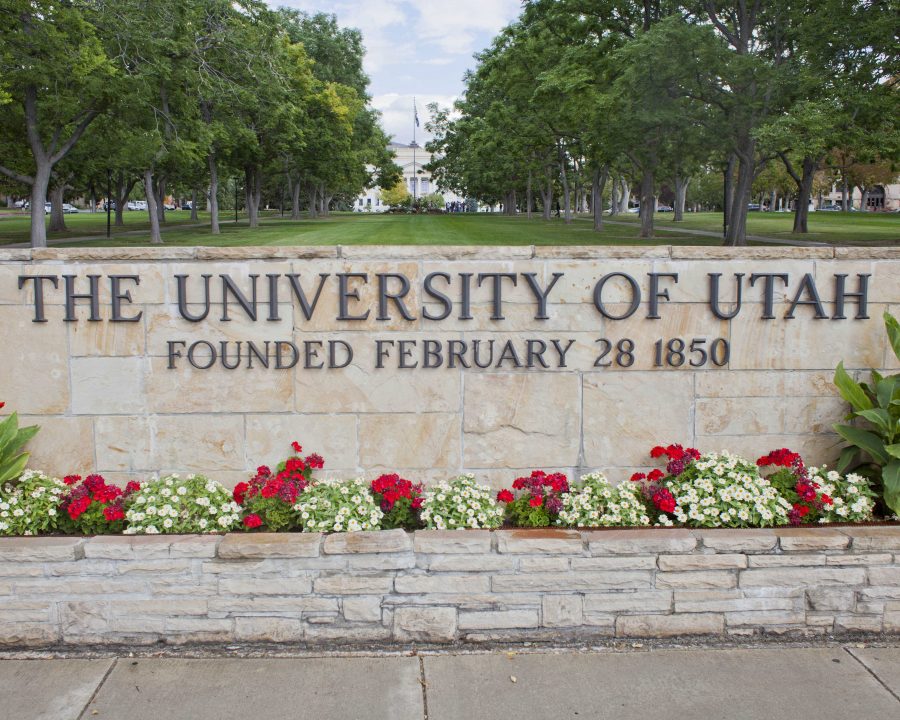Next year, students at the University of Utah will see their tuition bill raise by 3.9 percent. This translates to a $300 increase per year for resident undergraduates who are taking 15 credit hours.
On Friday, March 30, the Utah Board of Regents met at Dixie State University to approve tuition increases for all of Utah’s higher education institutions.
Each year, tuition is raised on two levels — tier I and tier II.
While the tier I increase is mandated by the Utah System of Higher Education (USHE) and is the same for all higher education institutions in the state, tier II is issued by the individual institutions’ Board of Trustees. The Board of Regent’s proposed average for both tier I and II tuition increase statewide was 2.5 percent. A statement released by the USHE declared this average to be “the lowest system-wide average since 1996-1997.”
The tier II increase proposed by the U’s board of trustees is 2.4 percent. The U’s total increase of 3.9 percent will thus surpass USHE’s proposed average. In an email to The Utah Chronicle, Cathy Anderson, the U’s associate vice president for budget and planning, stated “the University of Utah has been discussing an overall increase of 3.9 percent since January. These funds will be used for enhancing the programs we have in place to help students succeed at the university.”
According to the agenda released by the Utah Higher Education State Board of Regents for the 2018 legislative session, the tier I increase must be used across all state instituions for things like faculty compensation and critical student support. As mandated by the state legislature, 75 percent of any approved compensation increase must be funded with state tax funds and the remaining 25 percent is funded through an increase in tuition.
S.B. 8 of this year’s legislative session mandated a 2.5 percent salary increase for all state and higher education employees. The salary increase is funded in part by this year’s tuition increase.
Utah state code requires institutions within USHE to hold a public meeting while in the process of preparing a budget that will increase tuition rates for undergraduate students. Accordingly, the U held a Truth in Tuition public hearing on March 13 from 1:30-2:30 p.m. in the Marriott Library’s Gould Auditorium. The sign-in sheet for the event indicated 33 students and one faculty member attended.
A number of students at the event lamented what they felt was a lack of public awareness.
“I think it would be a bit better if this was more advertised, because I know that they had some of the information available online, but having people here to explain it makes it more accessible in terms of language,” said Emilia Ata-Ata, a first-year graduate student at the U.
Andrea Salcedo is also in her first year of graduate school and is a graduate assistant for leadership development and training in the Union. She did not recall seeing many posters around campus for the event.
“It is kind of disappointing to see that there is a lack of advertising because this is information that a lot of students should be consuming and should be aware of, especially when a lot of students complain about the fees going up,” Salcedo said. “The cost of education is already high so for it to be increasing we need to be knowing where that money is going.”
According to Sandy Hughes, the U’s director of accounting and finance, the 2.4 percent tuition increase implemented by the U, after covering the state-mandated salary increase, will go toward funding institutional expenses. These expenses include graduate student support, academic advising, internship opportunity coordinators and cultivation of interdisciplinary research relations.
Savannah Allen, a junior at the U, also felt poor attendance at the event was due to a lack of advertising.
“There are a lot of things [the U] could have done to make it easier for students to know about [the event],” Allen said.
She explained that she would have liked to see emails sent to students, more flyers and notices posted throughout various colleges and departments at the U.
Utah code mandates that the public must be notified of the event twice during a period of 10 days prior to the meeting through the student newspaper. Accordingly, the U ran the advertisement in The Utah Chronicle on March 5 and 12.
At the event, Anderson said in addition to following these state regulations, the school also posted flyers in the Union and announced the event during public meetings. Anderson added emails about the event were not sent because “students get inundated with emails, so we are trying to do [advertising] through the web.”
c.giardinelli@dailyutahchronicle.com
@TheChrony



None • Apr 18, 2018 at 9:00 am
Meanwhile other institutions are freezing their tuition – some going on 4 or more years.